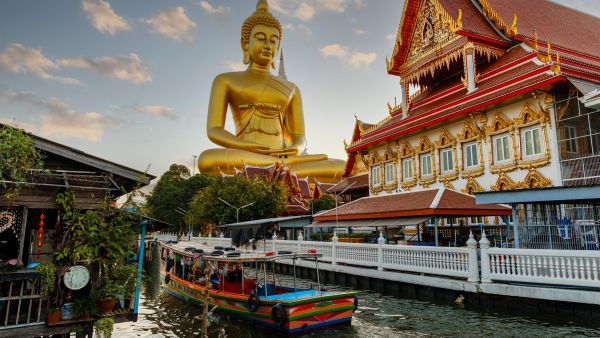Dr. Gil Feiler
In recent years, Thailand has become an increasingly popular destination for Arab tourists seeking a mix of tropical luxury, rich culture, and world-class hospitality. As the Airbus A380 from Dubai touched down at Suvarnabhumi International Airport, a new wave of Middle Eastern visitors began their Thai adventure. Most arrived from Gulf Cooperation Council (GCC) countries—particularly Saudi Arabia, the United Arab Emirates, Kuwait, and Qatar.
According to the Tourism Authority of Thailand (TAT), nearly 550,000 tourists from the Middle East visited Thailand in 2023, a remarkable recovery following the COVID-19 downturn. Among them, Saudi tourists made up the fastest-growing segment, driven by the 2022 restoration of diplomatic ties between the two nations.
Patterns and Preferences
Arab travelers in Thailand are often high spenders. On average, they spend about 5,000–7,000 THB (around $140–200) per day, not including shopping splurges. Luxury malls such as Siam Paragon and ICONSIAM see brisk business from these visitors, who shop for international brands, Thai silk, perfumes, and even herbal supplements.
Family travel is a dominant theme. Unlike the stereotypical backpacker, Arab tourists—especially those from the GCC—prefer comfort and privacy. They book five-star hotels or private villas, often with their own pools and halal-certified kitchens. Popular chains such as Anantara, Mandarin Oriental, and Banyan Tree have tailored experiences, including prayer rooms and Arabic-speaking staff, to serve this clientele.
Food is another strong consideration. While many enjoy Thai cuisine, halal options are essential. Bangkok, Pattaya, and Phuket offer a growing number of halal-certified restaurants. Arab tourists also seek out Middle Eastern cuisine in areas like Nana (Bangkok), which has come to be known as the “Arab Street” due to its vibrant concentration of Lebanese, Syrian, and Egyptian eateries.
The journey for many Arab tourists often begins in Bangkok, the capital. From the opulent Grand Palace to the bustling Chatuchak Market, it offers a rich mix of tradition and modernity. But increasingly, travelers venture beyond.
Phuket and Krabi are favorites for beach getaways, where hijab-friendly beach resorts offer women-only pools or private access to the sea. Chiang Mai, known for its cool weather and mountain retreats, appeals to travelers interested in nature, culture, and relaxation. Desert-bound tourists are often enchanted by Thailand’s lush greenery and waterfalls.
One notable trend is the rise in medical tourism. Arab nationals frequently visit Thailand for advanced healthcare—ranging from cosmetic procedures to fertility treatments and health check-ups—at international hospitals such as Bumrungrad and Bangkok Hospital. Many hospitals employ Arabic translators and even offer prayer spaces for Muslim patients.
Behaviorally, Arab tourists tend to be respectful of local customs but expect reciprocal respect for their own values—especially around modesty, religious observances, and dietary requirements. It’s not uncommon to see tourists praying in quiet corners of airports, malls, or beaches.
Economic and Cultural Impact
The impact of Arab tourism in Thailand is both economic and cultural. In 2023, Middle Eastern tourists contributed more than 20 billion THB (approximately $560 million USD) to the Thai economy. Their spending supports hospitality, retail, and transportation sectors, with indirect boosts to local agriculture and crafts.
Thailand’s tourism operators are increasingly adapting. TAT has launched campaigns in Arabic-speaking countries and increased its presence at Gulf tourism expos. In turn, Thai culture—known for its tolerance and warmth—continues to welcome Arab guests with genuine hospitality.
Yet, the relationship is not without its nuances. As Thailand becomes more inclusive of Muslim tourists, it also navigates the balance between preserving its Buddhist identity and embracing cultural diversity. Efforts like building halal tourism infrastructure, promoting mutual cultural understanding, and training hospitality staff in cultural sensitivity reflect Thailand’s commitment to making Arab visitors feel at home.
In many ways, Arab tourists are not just visitors—they are bridges between two rich, ancient cultures. Whether enjoying the sun-kissed beaches of the Andaman Sea or bargaining in the heart of Bangkok, they are writing a new chapter in Thailand’s global tourism story—one of curiosity, connection, and shared respect.









